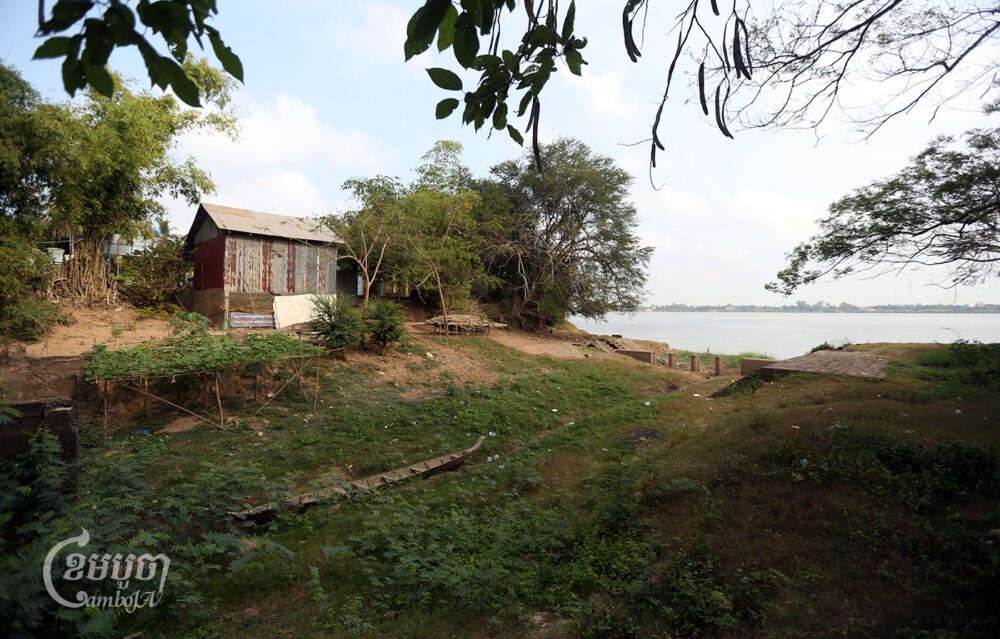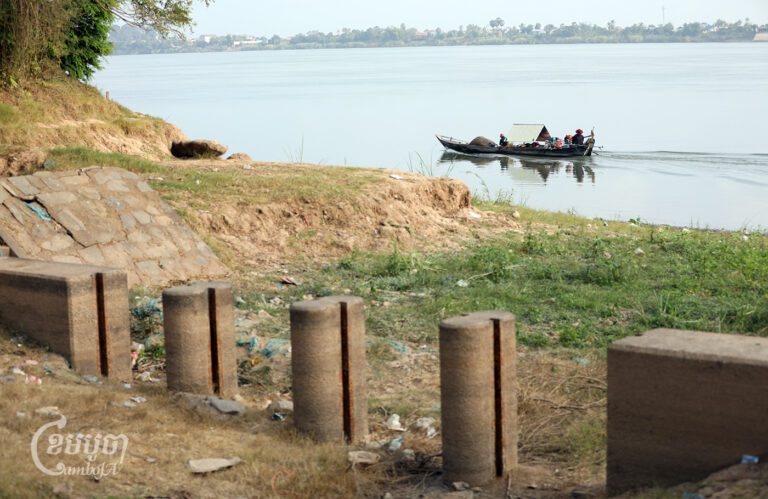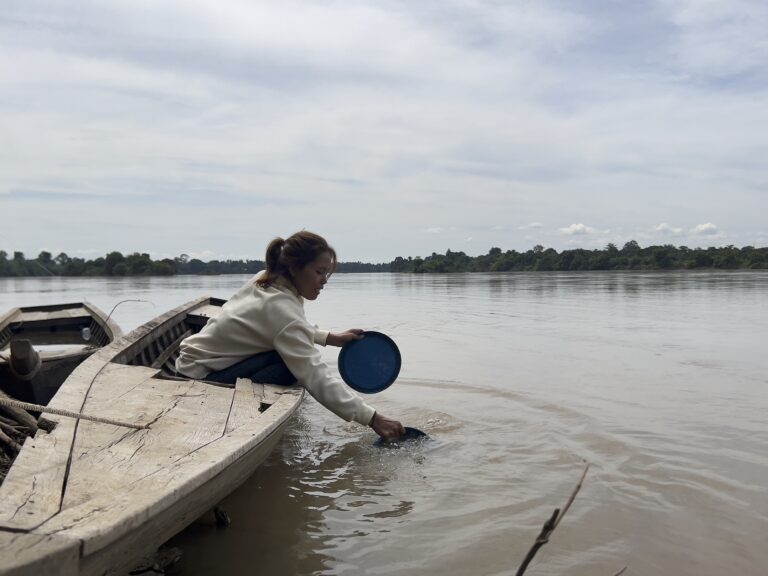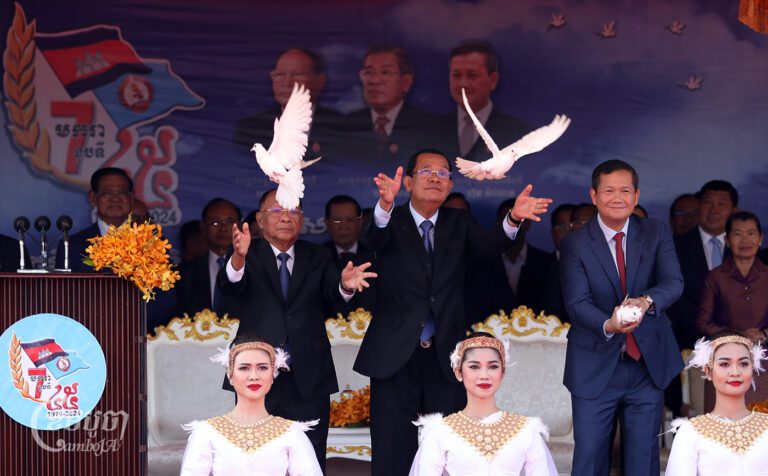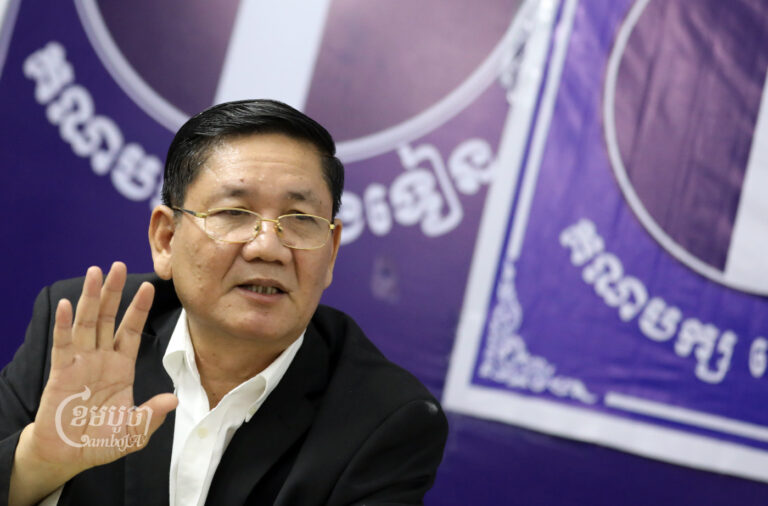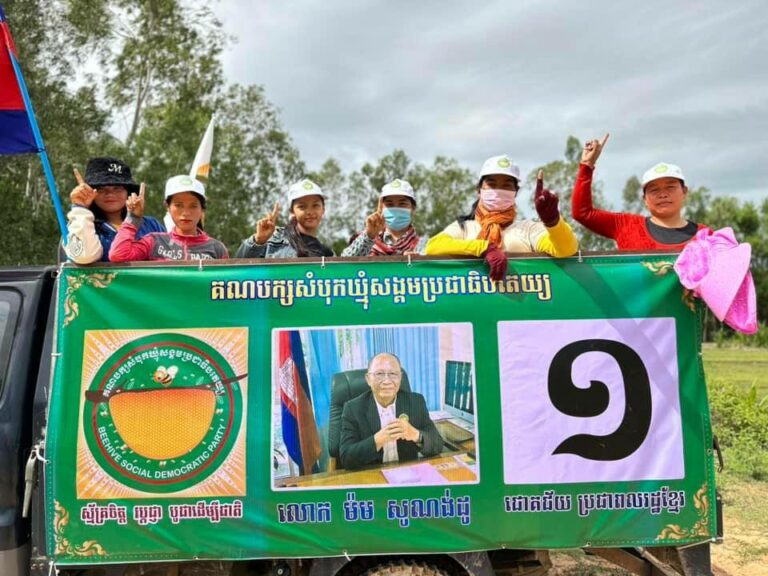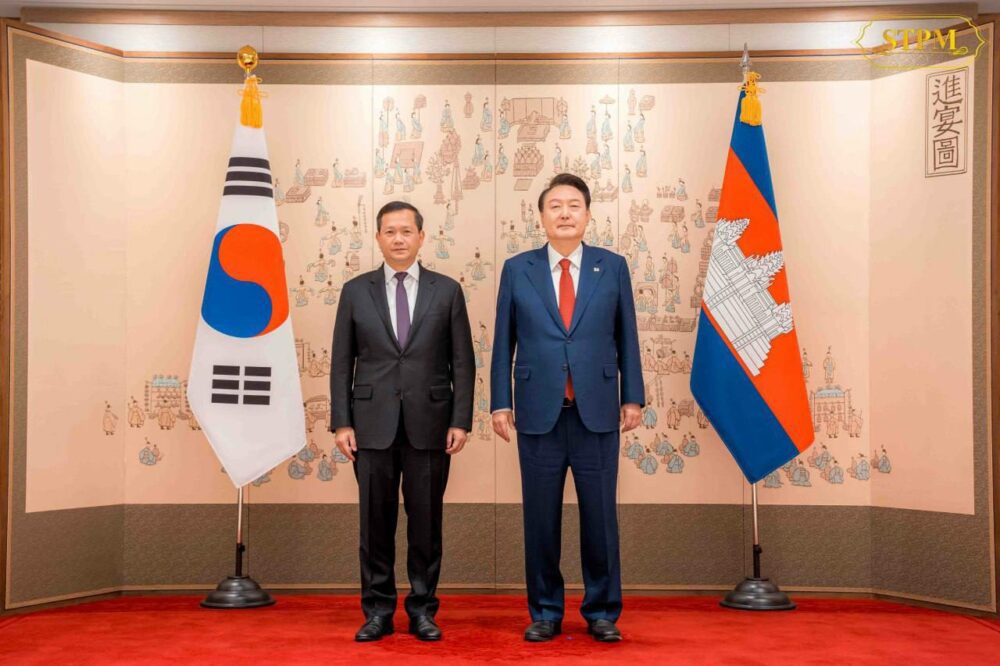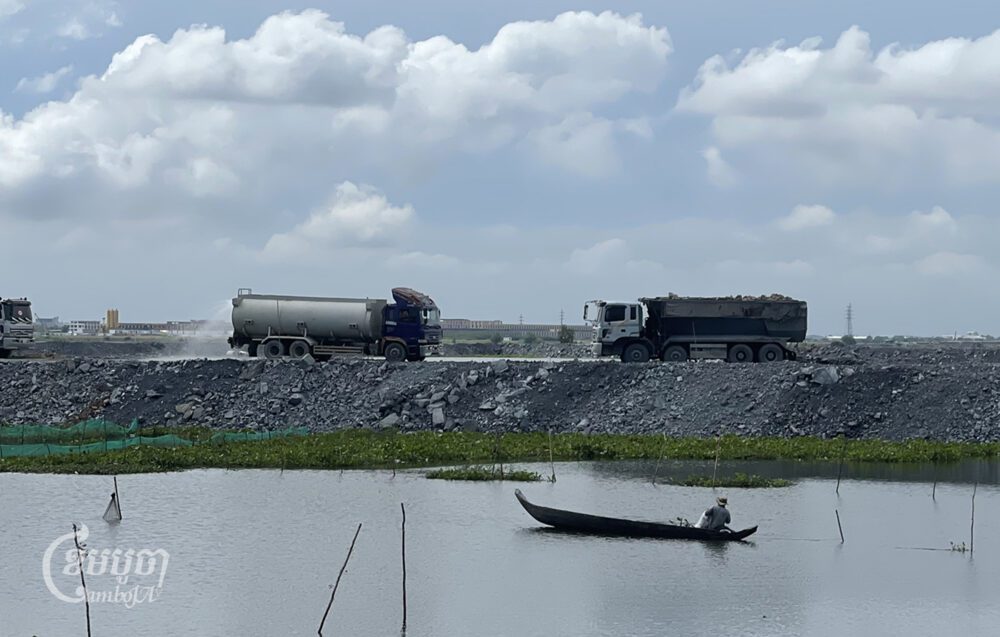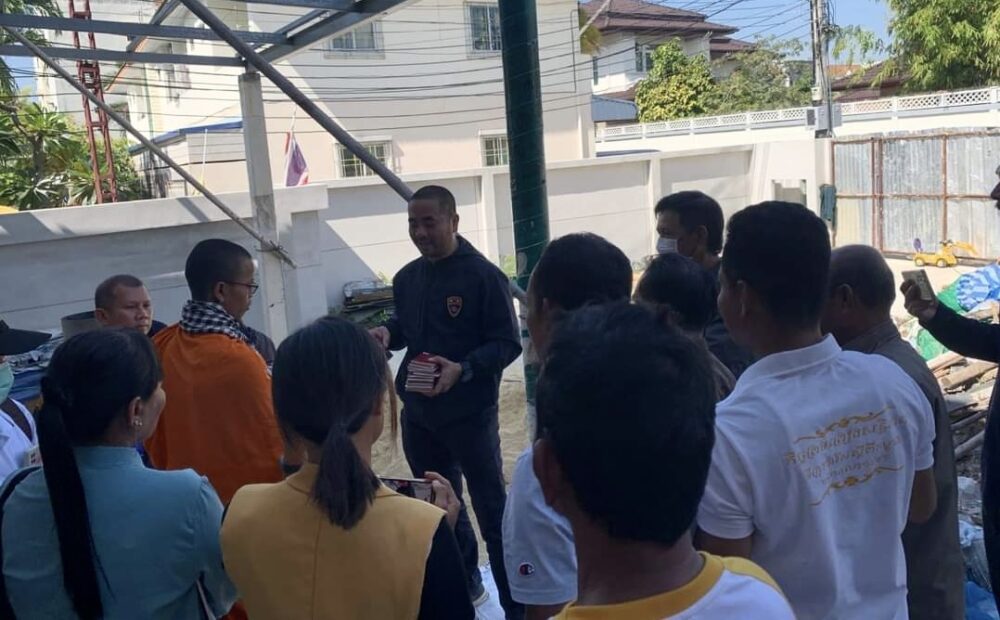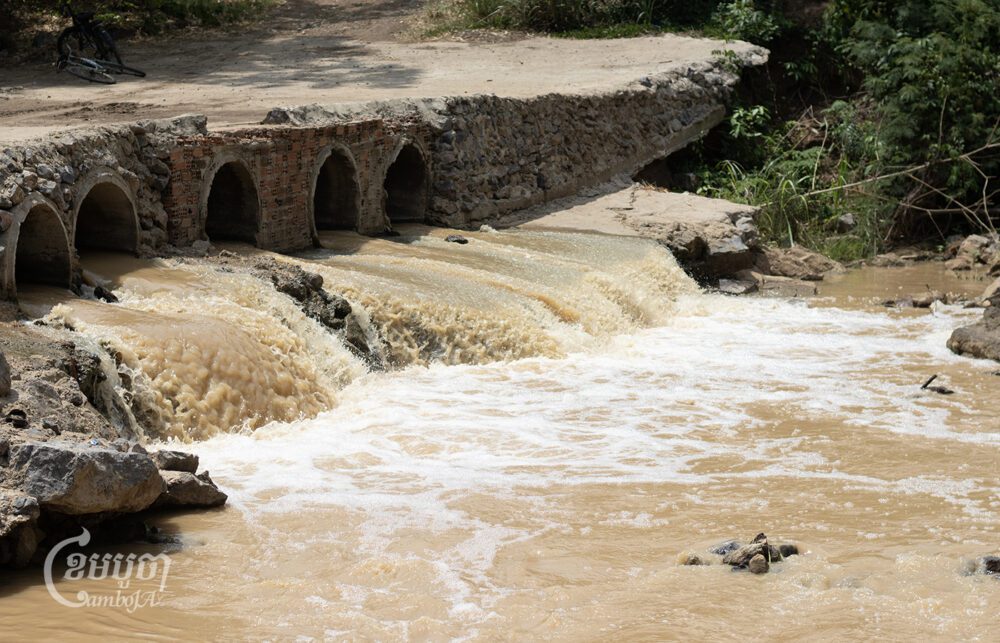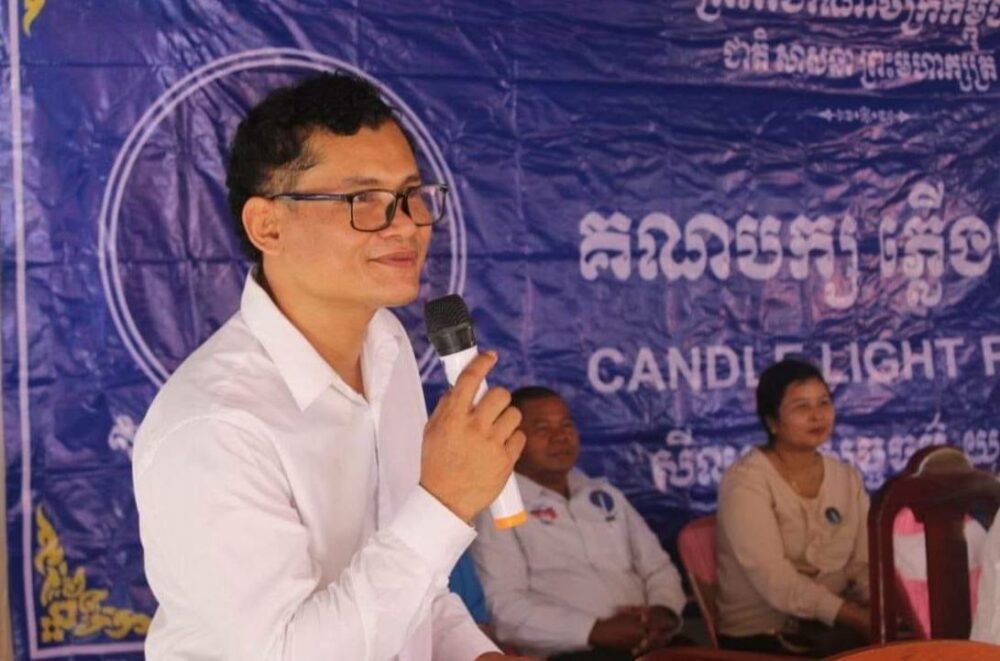The Funan Techo canal has received overwhelming response from Cambodians following Senate president Hun Sen’s call to locals to show their support after a string of criticism and negative news on the project was reported by foreign media and research institutions.
The former prime minister broke his silence amid criticism of the canal project, which linked its purpose to the Chinese military.
At the Cambodian Oknha Association gala dinner on April 26, Hun Sen said he needed to respond to the criticism on behalf of Cambodia and how the project would benefit the country. He called for support from Cambodians to make the Funan Techo canal a national monument.
Citizens, workers, government units and students joined the movement to support the project, speaking out via videos and petitions, and posting it on social media.
“As a citizen, I would like to express my full support for the Funan Techo canal project, a right decision made by the Cambodian government, which is scheduled for construction at the end of 2024 or early 2025,” said a citizen, whose message was shared on Hun Sen’s Telegram.
“We are very proud that the Royal Government has made the right decision in bringing economic benefits to Cambodia as a whole, as well as leaving a legacy for the next generation of Cambodians.”
Separately, several riverine communities, who will be affected by the canal project, have said they support the project but hope that will be properly compensated.

Hun Sen said the canal would provide easy transportation in Cambodia and connect to the sea without having to cross into other countries, thus creating economic growth for the country. “I want to confirm that there is no negotiation,” he said, adding that if the canal is not dug, Cambodia will still depend on Vietnam for sea transport, which will force Cambodia to spend thousands of dollars.
“This kind of transportation will attract more investors, and existing investors will increase investment after they notice the ease of transport,” he said. “We don’t need to pay extra to Vietnam than what we have [already] been paying.”
“If [we] don’t dig a canal, we’ll still depend on others to ‘breathe’. It’s also a message to Vietnam that the reason why Cambodia has to build the canal is because it is very difficult [as Cambodia does not have a waterway transport network],” he said. “I hope the Vietnamese leader will understand Cambodia’s needs.”
He pointed out that irrigation was another advantage of the canal as it can be a source of water for provinces in southwest Cambodia such as Kandal, Takeo, Kep, Kampot and Kampong Speu. The canal can also relieve flooding and improve marine resources.
In addition, Hun Sen stressed that Cambodia is committed to build the canal even if it “cannot obtain foreign investment”, thus urging local tycoons and those with financial means to contribute to the project. “We must unite to build this canal.”
Seng Vanly, an Asia Pacific geopolitical observer, said Hun Sen’s reaction is based on the principle of sovereignty, where a country can develop infrastructure on its own land.
That said, Cambodia should not ignore Vietnam’s reaction because the research institute connected the canal to geopolitics. He alleged that Vietnam’s intention is to “spread the information widely” to engage other countries which are worried about China’s military activities.
“I think Vietnam’s report might make [ASEAN] member countries, which have issues with China, to put more pressure on Cambodia,” Vanly said.
It would be remarkable if Cambodia developed the project with transparency and accountability, and was funded by local tycoons, he added, however Vietnam might be worried as the canal was a build-operate-transfer (BOT) project with a Chinese company.
“To avoid criticism and geopolitics, I think that the Senate president should delay the construction until next year and open more talks with the public about the benefit and impact of this project.”
Hong Vannak, an economist with Royal Academy of Cambodia, said the canal is a strategy for national development. Cambodia will gain a lot by saving money from transportation, environmental and road damage by delivering goods through the waterways.
As the canal was being built in Cambodia, Vietnam should not object, he said, adding that Vietnam “seems intent on denying Cambodia a more prosperous economy.” The transportation cost per container through Vietnam is around $900, Vannak shared.
Early this month, Singapore’s Straits Times reported the concerns of two Vietnam state-backed institute researchers who said the canal might allow Chinese ships to reach the Cambodia-Vietnam border, “giving the project significant military worth and impacting the region’s defense and security situation”.
Vietnam’s Ministry of Foreign Affairs spokesperson told CamboJA News via email on April 12 that they support the demand for socio-economic development of Mekong river riparian countries.
It also emphasized the importance of strengthening cooperation for effective and sustainable management and use of the Mekong River water resources because it is critical for the sustainable development of the basin and the interests of communities in the basin, the future of the next generation, and solidarity among riparian nations.
Vietnam is “deeply interested” in the information about the project, the spokesperson told CamboJA News. As such, they asked Cambodia to closely collaborate with them and the Mekong River Commission (MRC) to share information and assess the project impacts on water resources and ecosystem in the Mekong Delta region to ensure “harmonious interests of riparian countries and local residents”.
The spokesperson, however, did not respond to additional questions on Hun Sen’s speech at the Cambodia Oknha Association gala dinner.
Hun Sen has previously mentioned that because Cambodia was only digging the tributaries of the Mekong River, so “there is no need to consult with Vietnam”. If they want to know more, they can check with the Cambodia National Mekong Committee (CNMC) as Cambodia has submitted documents since August last year.
Meanwhile, the MRC said its secretariat received a notification from Cambodia via the CNMC secretariat in August last year, informing them of Cambodia’s intention to restore and build the canal.
Following the notification, the MRC secretariat transmitted it to the other member countries as per their procedure, it said in reply to CamboJA News via email.
The notification by Cambodia stated that “there will be no significant impact on the Mekong River system’s daily flow and annual flow volumes”. The construction and operation of the three-waterway locks would enable the effective and efficient management and control of the flow in the canal.
“Since the information we received was brief, containing technical engineering and a short description of impact assessment, we could not comment on any of the aspects at this stage. The MRC Secretariat has requested and has been waiting for further detailed information of the project from Cambodia,” MRC said.
Neither the Chinese Embassy, US Embassy and Vietnam Embassy in Cambodia replied to requests for comment.


